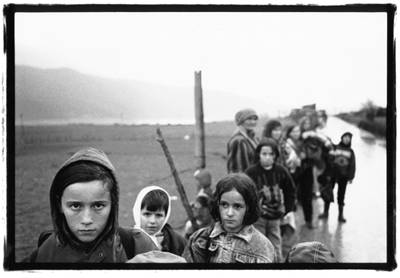

Our work in Kosovo is a case study in what Human Rights Watch does best: meticulously gathering evidence of human rights abuses and using the media to bring this information to policy makers and the public. Human Rights Watch has been monitoring the situation in Kosovo since 1989, with particular emphasis on documenting war crimes and crimes against humanity. We have conducted five missions and published two book-length studies of war crimes committed in Kosovo during the past year. We have also monitored activities of all parties to the conflict since the NATO campaign began and urged an effective response by the international community to the refugee crisis.
Our web site Focus on Kosovo has quickly become recognized as a key instrument to communicate the latest developments in the region to the public, policy makers and the press. Since March 25, when we inaugurated our web site information bulletins, Kosovo Human Rights Flashes, daily visits to the site have more than doubled. In addition, numerous other web sites have linked to our Flashes and voluminous background information. These include CNN, Yahoo Full Coverage, the New York Times, and Central Europe Online, along with other major news sources.
Still So Much to Do
In addition to sustaining our emergency response to the crisis, we see a critical need to investigate more systematically the full campaign of ethnic cleansing in Kosovo. Our goal is to produce the most comprehensive documentation possible - in order to facilitate prosecution and, ultimately, accountability. This is typical of Human Rights Watch's long-term commitment to resolving the underlying causes of human rights abuses - as we have done in Bosnia, Rwanda, Indonesia and in other strife-torn regions.
But our emergency response has imposed several strains on our limited resources. We need new resources to continue our effective presence in the region and to remain a credible source of unbiased information for both the media and the public.
To do this, we urgently need additional funds now. You can help.